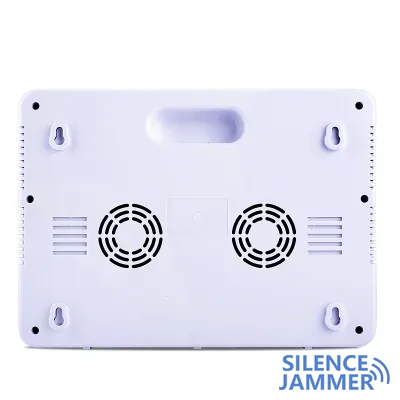In India, the competition for the Union Public Service Commission (UPSC) preliminary exam is extremely fierce, and millions of candidates participate in this exam every year, hoping to enter government service through the exam. signal jammer However, in recent years, with the rapid development of technology, the means of cheating in exams have become increasingly complex and diverse. cell phone jammer To meet this challenge, the test center in the Bareilly district has introduced jammer devices for the first time in the upcoming UPSC preliminary exam, aiming to combat cheating and ensure the fairness and impartiality of the exam.GPS jammer
Introduction of jammers: a necessary measure to improve exam security
The UPSC preliminary exam on June 3 will be held at 37 test centers in Bareilly, with a total of 17,500 candidates participating. Wifi jammerThese test centers are equipped with jammer devices for the first time to prevent candidates from cheating using electronic devices such as Bluetooth and Wi-Fi. District Administrator VK Singh said that although this is the first time that jammers have been installed in the test center, this measure is crucial to ensure the integrity and fairness of the exam.
Jammers are devices that can block electronic signals. They block the communication between mobile phones, tablets and other devices and the outside world by interfering with the propagation of radio waves. With the advancement of modern technology, some candidates use microelectronic devices hidden in collars, shirt buttons and even pens to cheat. This high-tech cheating method makes it difficult for traditional proctoring methods to deal with it. Therefore, the introduction of jammers has become an effective weapon to combat this problem.
Wide deployment of jammers: full coverage from test sites to technological facilities
To ensure the effectiveness of jammers, the local government has cooperated with Bharat Electronics Ltd to install these devices in all 37 test sites. Each test site will be equipped with two or more jammers according to its size and the number of candidates to ensure the best signal shielding effect in the entire test site. In addition, two judges and police officers are deployed at each test site to further strengthen the order and security of the test site.
The use of jammers this time is not just to deal with the UPSC exam, but a strong counterattack against cheating in various entrance exams and competitive exams across the country. In recent years, cheating has emerged in an endless stream, especially in some key exams, where candidates use hidden devices to transmit answers. This deployment will have an effective deterrent effect on this cheating method.
The impact of jammers from the perspective of candidates: fairness and challenges coexist
For candidates, the introduction of jammers means a more fair examination environment. However, this also puts higher demands on them. Candidates must arrive at the examination center on time 10 minutes before the start of the examination, and will not be allowed to enter the examination room after the time limit. The examination will be divided into two sessions, morning and afternoon, from 9:30 to 11:30 and 2:30 to 4:30 respectively. All candidates must strictly abide by the examination time to ensure fair competition.
Although the original intention of the introduction of jammers is to maintain the fairness of the examination, its impact has also caused concerns among some candidates. For example, some candidates are worried that jammers may affect the normal use of their legal devices such as electronic watches or hearing aids. In this regard, the staff of the examination center said that the use of jammers is limited to shielding the signals of mobile phones and other communication devices, and will not have an adverse effect on other electronic devices.










